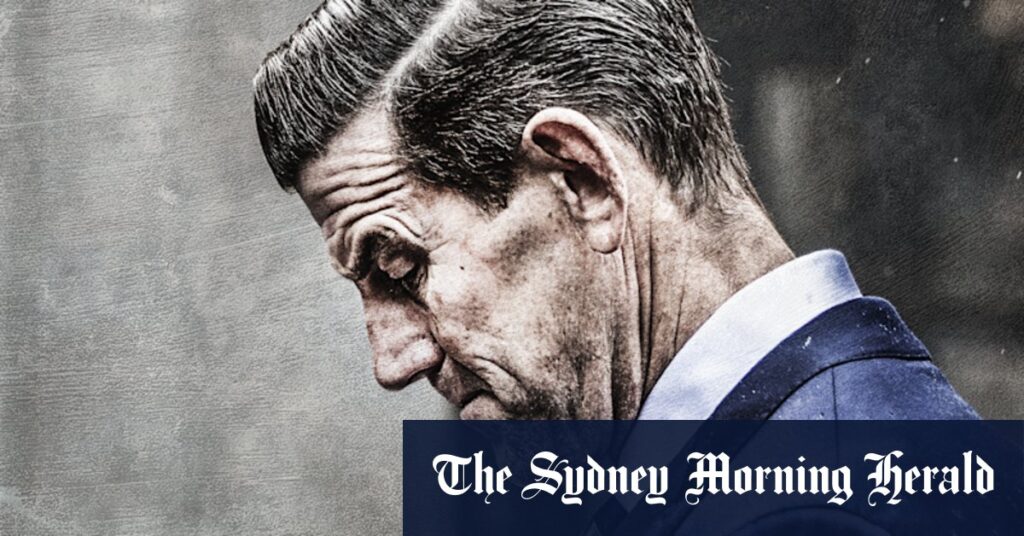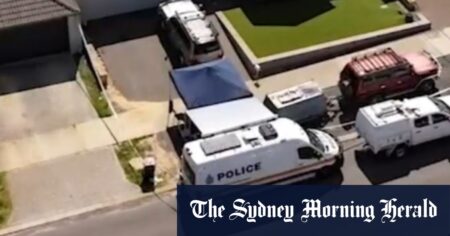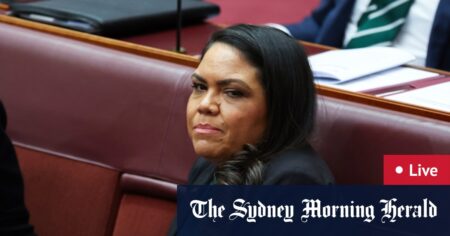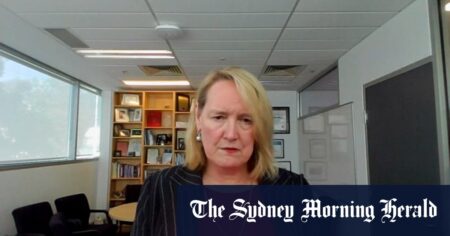A report was produced, but no result has been published and nobody has been sanctioned. This masthead sought the three statements and the report, in the public interest, under freedom of information legislation.
However, after four years, and despite its arguments being demolished in the Federal Court, the AFP has refused to release anything. In its latest legal salvo, the agency has lodged a series of documents with the Administrative Review Tribunal and again argued that the documents are exempt from release in full.
AFP Commissioner Reece Kershaw did not answer questions about the affair.Credit: Alex Ellinghausen
A key argument is that releasing any part of the documents would breach the confidentiality of the former commissioner, deputy commissioner and head of internal affairs, among others, and have “a devastating impact” on the internal investigations function of police.
“Reporting potential misconduct or corruption requires an AFP appointee to report against their own colleagues, which can be very difficult for AFP appointees to do, given the tight-knit nature of policing,” the police argue.
“The assurance of confidentiality that anything which is reported will be kept in the strictest of confidence encourages reporting without the risk of reprisal or being ostracised.”
To support their argument, the police released results from a recent AFP staff survey, which shows 5 per cent of AFP officers had witnessed corruption in the past 12 months, and only 15 per cent of those people had formally reported what they saw.
The commander of police professional standards, Ben Case, said in evidence that this was a concern to him, and to release any part of the historical documents from the AFP’s former commanders about the 2018 leak to Keelty would make the situation worse.
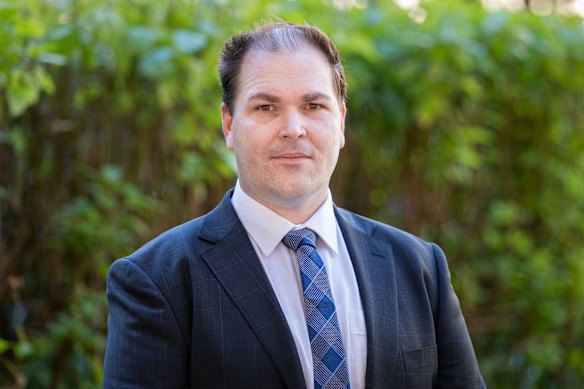
Concerned about corruption: AFP commander of professional standards Ben Case.
“Commander Case is confident that there will likely be a reduction in the number of AFP appointees reporting integrity matters, which will damage the AFP’s ability to manage the integrity of its members,” the police evidence alleges.
This in turn would “culminate in a significant loss of public trust in the AFP and would have a devastating impact on its ability to function effectively”.
Loading
The AFP did not answer questions about whether this argument smacked of exaggeration or hunting for excuses not to release the documents.
The AFP has also either adopted new arguments for the first time in more than four years or doubled down on arguments already rejected by the full bench of the Federal Court in February.
In that judgment, the court, which had read the documents, found it was “at least seriously arguable” that significant portions of the report of the inquiry could be disclosed without a “substantial adverse effect”. Appropriately redacted, the release would be in the public interest, the court found.
However, the police have doubled down, saying the redactions would be so heavy that what was left would be “a skeleton of the documents”.
Loading
The police have also reiterated an earlier, dismissed, argument that the documents’ release would involve the “unreasonable disclosure of personal information about numerous persons”. In February, the full bench said the public interest and “representative democracy” outweighed these arguments.
“Scrutiny, discussion, comment and review of the activities of the Commonwealth government and its agencies, and the conduct of those performing functions on their behalf, is a public purpose,” the judges found.
In answers to questions sent to AFP Commissioner Reece Kershaw, a police spokesperson replied: “In light of the Federal Court’s decision earlier this year, the AFP carefully considered its claims for exemptions and continues to consider these claims are properly made”.
The AFP has asked the tribunal to consider this case as if it were being considered for the first time.
The editor of The Age, Patrick Elligett, said: “Every reader should ask themselves why the AFP is fighting – at taxpayers’ expense – to keep secret this information which the Federal Court has already determined to be in the public interest.
“It’s a terrible look for an organisation that should be upholding the highest standards of transparency and accountability.”
Sydney Morning Herald editor Bevan Shields said the AFP’s actions in this “critically important case are alarming”.
“Top brass appear to be relying on spurious reasons to avoid accountability and transparency. We are not going to stop fighting the AFP’s obstruction, which to some readers might look a hell of a lot like a cover-up.”
Confidential sources have told this masthead that the records of Gaughan and Ryan relate to how the pair secretly made a contemporaneous record of a phone call placed by Keelty to Gaughan, in which Keelty sought to discuss the police interest in Roberts-Smith. Colvin’s statement, which the AFP has refused to release under FOI, also details how Keelty had separately called him to discuss the Roberts-Smith matter.
The AFP spokesperson also did not answer questions about how much it had spent fighting this request, saying instead that: “The AFP takes its obligations to promote public access to information … seriously.”
Asked about these expenses and the AFP’s case, Home Affairs Minister Tony Burke refused to answer.
Get alerts on breaking news as it happens. Sign up for our Breaking News Alert.
Read the full article here







